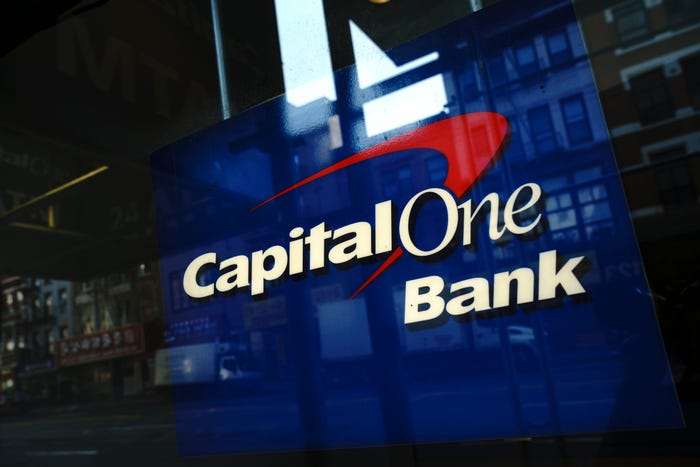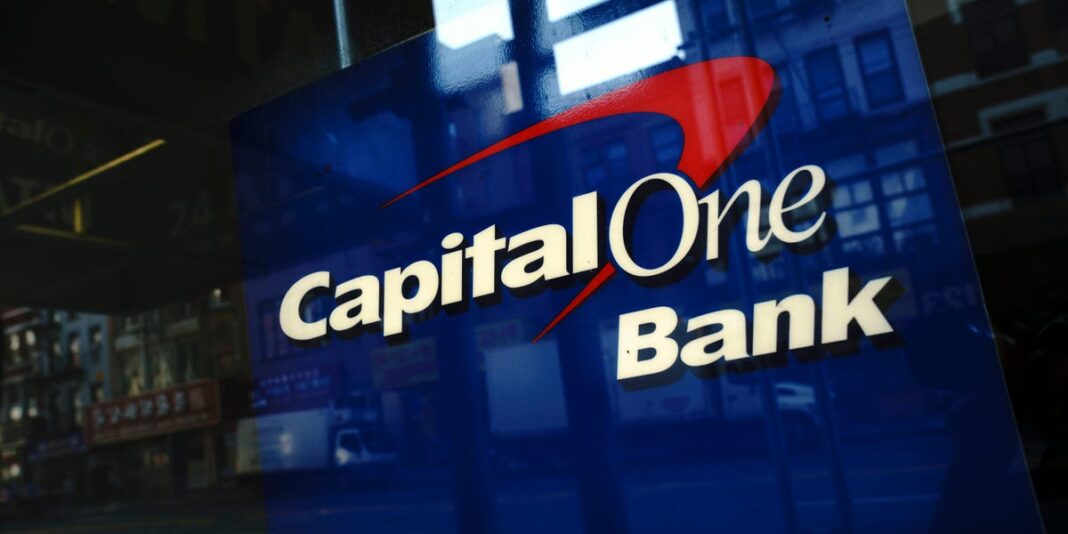In a move that’s sending shockwaves through the financial sector, two titans of the credit card industry have joined forces in a historic merger. The news has sparked a flurry of questions and concerns among consumers, investors, and industry experts alike. What does this seismic shift mean for the future of credit card transactions? Will the new entity offer more competitive rates, better rewards, and enhanced security features? As business insiders continue to dissect the implications of this massive deal, one thing is clear: the credit card landscape is about to undergo a significant transformation. In this article, we’ll examine the details of the merger and explore what it could mean for you, the consumer.
Mega Merger: Capital One Acquires Discover Financial Services

In a monumental deal, Capital One Financial Corporation has completed its acquisition of Discover Financial Services. The all-stock transaction is valued at $35.5 billion, bringing together two innovative companies with complementary capabilities and franchises.

The Deal
The acquisition was first announced in February, with Capital One’s founder and CEO, Richard D. Fairbank, stating that the deal presented a “singular opportunity to bring together two very successful companies with complementary capabilities and franchises, and to build a payments network that can compete with the largest payments networks and payments companies.”
Bringing Together Two Innovative Companies
Fairbank emphasized that the merger “brings together two innovative, mission-driven companies” and that “through the efforts of thousands of associates across Capital One and Discover, we are well-positioned to continue our quest to change banking for good for millions of customers.”
For now, the companies have assured that nothing will change for Discover customers.
Financial Performance: A Look at the Numbers
In April, Capital One reported a net income of $1.4 billion during its first-quarter earnings. Discover, on the other hand, reported a net income of $1.1 billion that same month.
Representatives for Discover Financial Services did not respond to a request for comment from Unionjournalism.
Discover’s Q1 Earnings: A Net Income of $1.1 Billion
Capital One Financial Corporation has completed its acquisition of Discover Financial Services, bringing together two innovative, mission-driven companies. Richard D. Fairbank, Capital One’s founder and CEO, said the deal “brings together two very successful companies with complementary capabilities and franchises, and to build a payments network that can compete with the largest payments networks and payments companies.”
Capital One reported a $1.4 billion net income during its first-quarter earnings in April. Discover reported a net income of $1.1 billion that same month.
What This Means for Customers
No Immediate Changes: Business as Usual for Discover Customers
For now, the companies said nothing would change for Discover customers. Business as usual will continue without any disruptions.
A Promise to “Change Banking for Good” for Millions of Customers
Capital One and Discover are committed to changing the banking industry for the better. The companies aim to use their combined resources to provide innovative financial solutions to millions of customers.
The Bigger Picture: Implications and Analysis
Building a Payments Network to Compete with the Largest Payments Companies
The acquisition will enable Capital One to build a payments network that can compete with the largest payments networks and companies. This will provide customers with more options and better services.
The Future of Banking: A Shift Towards Innovation and Mission-Driven Companies
The banking industry is undergoing a significant transformation. The acquisition of Discover Financial Services by Capital One is a step towards a future where innovation and mission-driven companies play a major role.
With the combined resources of the two companies, Capital One will be better positioned to drive innovation and provide customers with better financial services.
Conclusion
In conclusion, the merger between two of the world’s largest credit card companies marks a significant shift in the financial industry’s landscape. As discussed, this union brings together two powerhouses, combining their strengths to create an unparalleled entity. The implications of this merger are far-reaching, with potential benefits including increased efficiency, improved customer experience, and enhanced market competitiveness. However, it also raises concerns about market consolidation, potential job losses, and the concentration of financial power. As the financial industry continues to evolve, it is essential to keep a watchful eye on the consequences of this merger.
Looking ahead, this merger may set a precedent for further consolidation in the industry. As the financial landscape continues to shift, it is likely that other companies will follow suit, leading to a more streamlined and efficient industry. However, it also raises questions about the potential for monopolization and the need for regulatory oversight to protect consumers’ interests. As the dust settles on this merger, one thing is clear: the financial industry will never be the same.
Ultimately, this merger serves as a stark reminder of the ever-changing nature of the financial industry. As we move forward, it is essential that we prioritize transparency, accountability, and consumer protection. The true test of this merger’s success will not be in its financial gains, but in its ability to serve the needs of those it affects. As the financial industry continues to evolve, one thing is clear: the future of finance hangs in the balance.
